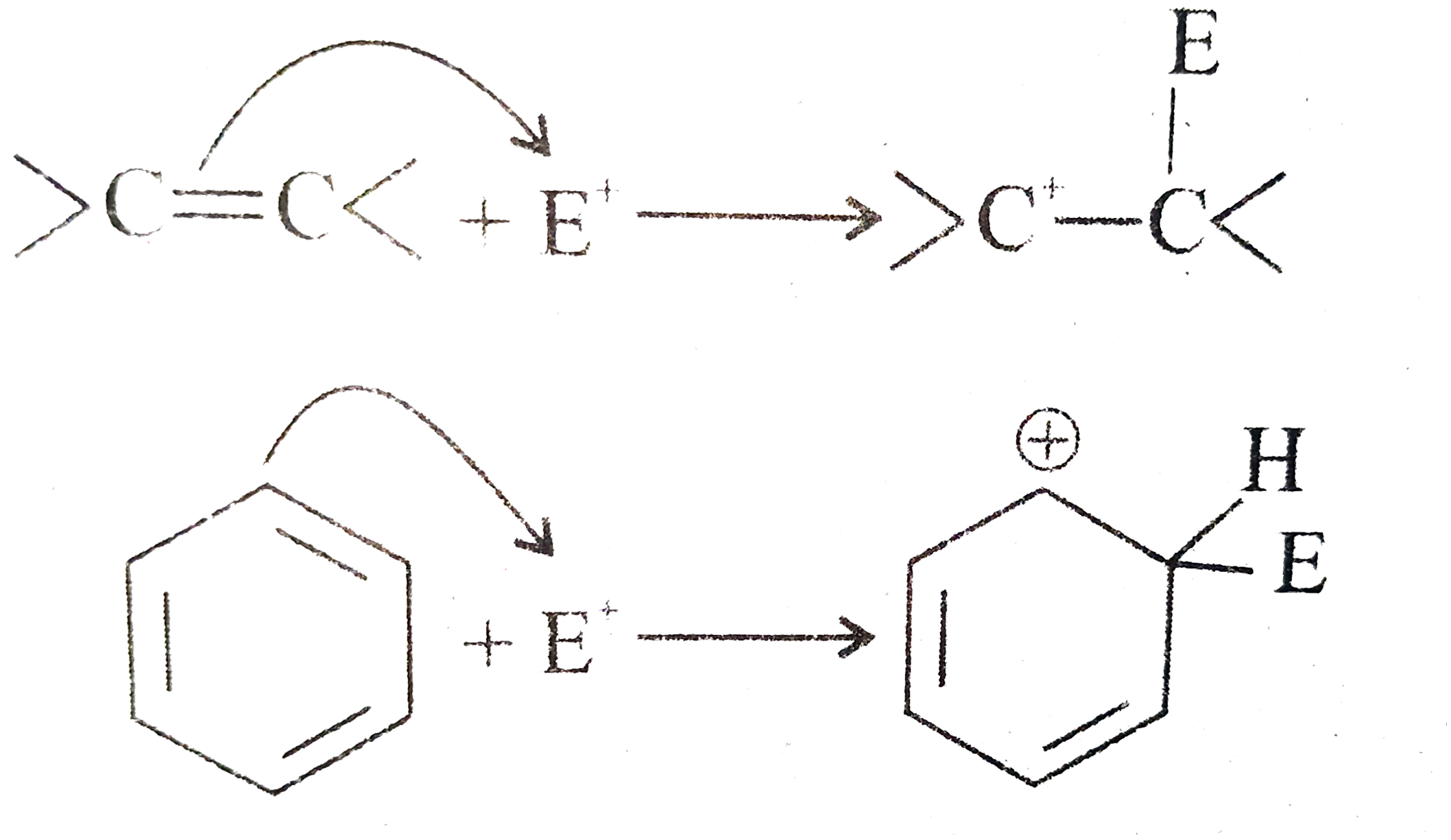Why benzene undergoes electrophilic substitution reaction where as alkenes undergoes addition reaction?
Text Solution
(i) Both benzene and alkene react with electrophiles to form carbocations.
This is the point of similarity.
(ii) The carbocation intermediate formed by benzene and the electrophile is stabilised by resonance.
(iii) The carbocation intermediate formed by alkene combines with the nucleophilic part of the reagent to form the addition product. Whereas the nucleophilic part of the reagent removes the proton from the benzene carbocation to form a substitution product to maintain the aromatic character of the product.

|
Similar Questions
Knowledge Check
The ether the undergoes electrophilic substitution reaction is
ACH3OC2H5BC6H5OCH3CCH3OCH3DC2H5OC2H5The ether that undergoes electrophilic substitution reactions is
ACH3OC2H5BC6H5OCH3CCHOCH3DC2HOC2H3The ether that undergoes electrophilic substitution reactions is
ACH3OC2H5BC6H5OCH3CCH3OCH3DC2H5OC2H5
Why do alkenes undergo electrophilic addition reactions ?
View SolutionNormally, benzene gives electrophilic substitution reaction rather than electrophilic addition reaction although it has double bonds. Explain why ?
View SolutionWhy phenol undergoes electrophilic substitution more easily than benzene?
View SolutionThe ether that undergoes electrophilic substitution reactions is
View SolutionThe ether that undergoes electrophilic substitution reactions is
View Solution
